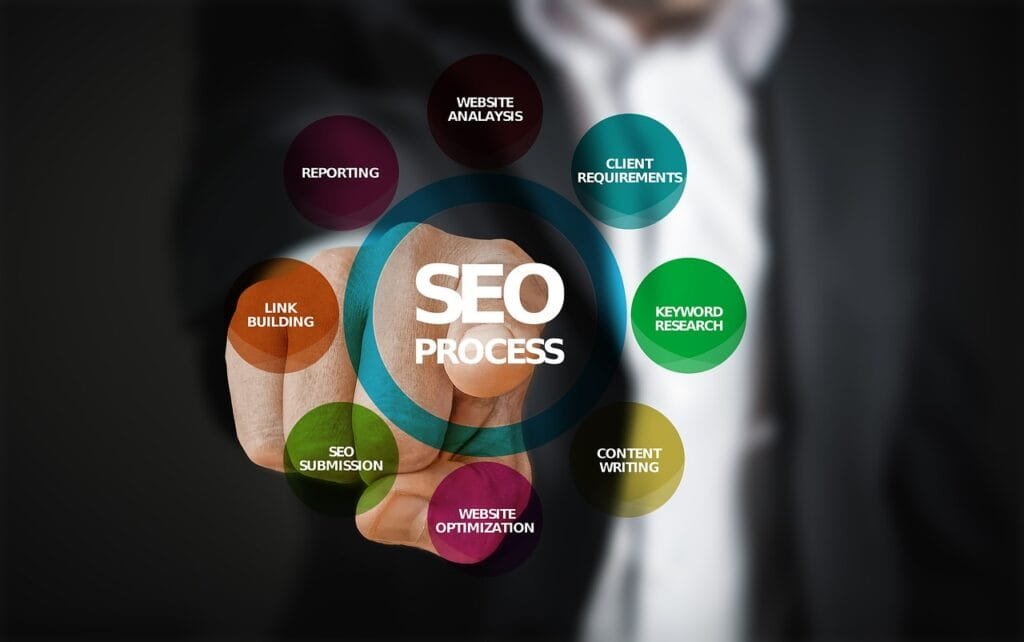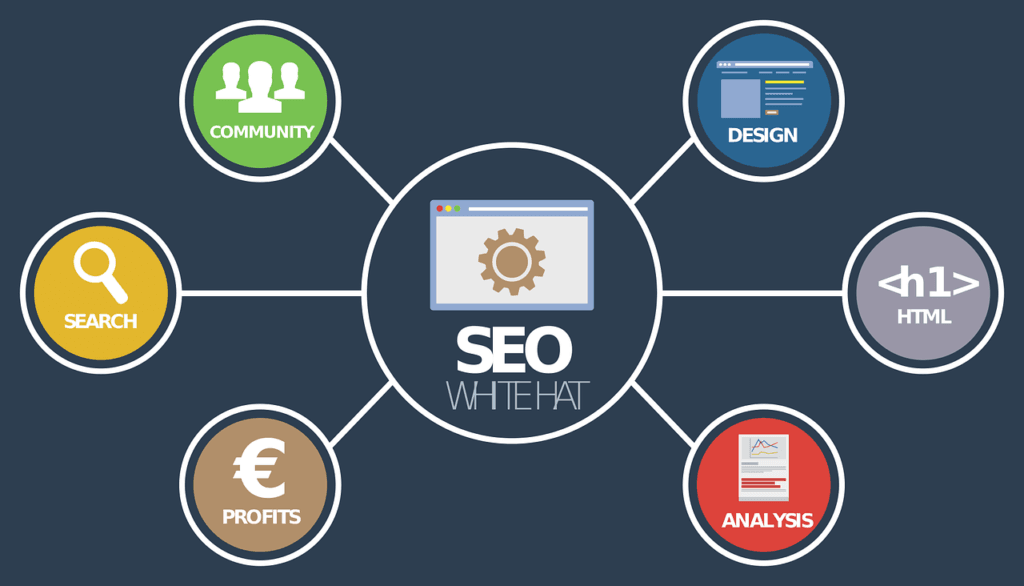This Article has been revised, edited and added to, by Poulomi Chakraborty.
- Strategic Deployment of Chatbots in Travel and Hospitality
- Harnessing Chatbots for Enhanced SEO Performance
- Elevating Keyword Strategy with Chatbots
- Fostering Trust Through Chatbot Interactions
- Enhancing Brand Reputation Through Proactive Engagement
- Leveraging Chatbots for Social Proof and User Engagement
- Integrating Chatbots for Mobile User Engagement
- Enhancing Voice Search Capability with Chatbots
- Leveraging Chatbots for Local SEO
- Elevating User Experience with Intuitive Chatbot Design
- Enhancing Engagement Through Personalized Interactions
- Leveraging Multimedia Content in Chatbot Interactions
- Leveraging Chatbot Interactions for SEO Insights
- Enhancing User Experience Through Feedback Loops
- Integrating Chatbot Insights with SEO Strategies
- Conclusion
The modern digital landscape has transformed the way industries interact with their consumers, and the travel and hospitality sector is no exception. Among the array of technological advancements, chatbots have emerged as an essential tool not just for customer service but also for Search Engine Optimization (SEO). In this article, we’ll delve deep into the integral role chatbots play in enhancing SEO for the travel and hospitality industry.
Strategic Deployment of Chatbots in Travel and Hospitality

In the dynamic realm of travel and hospitality, chatbots are revolutionizing the way businesses interact with their customers. Their role transcends conventional customer service, extending into strategic touchpoints that can significantly enhance the customer journey, improve operational efficiencies, and drive business growth.
Enhancing Personalization through AI-driven Insights
The cornerstone of a successful chatbot strategy in travel and hospitality lies in its ability to offer personalized experiences. AI-driven chatbots, powered by sophisticated machine learning algorithms, can analyze customer data in real-time to deliver tailored recommendations and solutions. This capability is crucial for startups looking to differentiate themselves in a competitive market.
For startup founders, the focus should be on developing chatbots that can effectively interpret customer preferences, past behaviors, and specific requests to offer personalized travel suggestions, accommodations, and even tailored travel itineraries. This level of personalization not only enhances the user experience but also increases the likelihood of conversions and customer loyalty.
Optimizing Operational Efficiency
Chatbots can significantly reduce the workload on human customer service teams by handling routine inquiries and tasks. This automation allows businesses to reallocate resources to more complex and revenue-generating activities. Founders should consider integrating chatbots with their booking systems and customer service databases to enable seamless interaction handling, from FAQs to booking modifications and cancellations.
The strategic integration of chatbots into these systems can provide a dual advantage: improving customer satisfaction through efficient service delivery and reducing operational costs by automating repetitive tasks.
Leveraging Chatbots for Market Research and Feedback Collection
In the context of strategic planning, chatbots can serve as powerful tools for market research and customer feedback collection. By engaging customers in conversation, chatbots can gather insights on customer preferences, emerging trends, and areas for improvement. This real-time feedback can be invaluable for startups in iterating and refining their offerings.
Startup founders should design chatbot interactions to subtly incorporate feedback queries at the end of conversations or after the completion of a service. This not only aids in continuous improvement but also makes customers feel valued and heard, fostering a positive brand image.
Expanding Reach with Multilingual Support
The global nature of the travel and hospitality industry necessitates communication across languages. Chatbots equipped with multilingual capabilities can help startups tap into international markets by breaking down language barriers. This expansion of reach is critical for startups aiming to attract a diverse customer base.
Investing in NLP (Natural Language Processing) technologies can enable chatbots to understand and respond in multiple languages, making your services accessible to a wider audience. Founders should prioritize languages based on their target markets and customer demographics to maximize the impact of this feature.
Enhancing Brand Image through Innovative Chatbot Interactions
The manner in which chatbots interact with customers can significantly impact the brand image. Creative and engaging chatbot interactions can serve as a differentiator in the crowded travel and hospitality sector. Startups should focus on designing chatbot interactions that are not only helpful but also reflect the brand’s personality and values.
Incorporating elements of humor, empathy, and storytelling can make chatbot interactions more relatable and enjoyable for customers. This strategy can elevate the user experience, turning routine transactions into memorable brand experiences.
Chatbots as Strategic Assets
For startups in the travel and hospitality industry, chatbots are not just technological tools but strategic assets that can drive customer engagement, operational efficiency, and business growth. By focusing on personalization, efficiency, market research, multilingual support, and innovative interactions, startup founders can leverage chatbots to create a competitive edge.
The strategic and thoughtful implementation of chatbots can transform customer interactions, streamline operations, and enhance the overall brand image, setting the stage for sustained success in the dynamic travel and hospitality landscape.
Harnessing Chatbots for Enhanced SEO Performance

In the digital-first travel and hospitality sector, the synergy between chatbots and SEO can be a game-changer for startups looking to carve out a niche in this competitive space. Understanding and implementing strategies that capitalize on this synergy can significantly boost a website’s search engine ranking and visibility.
Improving Site Engagement Metrics with Chatbots
Engagement metrics such as time on site, bounce rate, and pages per session are crucial SEO factors that search engines consider when ranking websites. Chatbots, when strategically implemented, can significantly improve these metrics.
Keeping Visitors Engaged
By initiating proactive conversations, providing instant assistance, and guiding users through their website journey, chatbots can keep visitors engaged longer. This extended engagement signals search engines that the website is providing value to its users, positively impacting its SEO ranking.
Reducing Bounce Rates
A well-designed chatbot can effectively reduce bounce rates by quickly addressing visitor queries and guiding them to relevant sections of the website. This not only improves user satisfaction but also signals to search engines that the website is a valuable resource, further boosting SEO performance.
Enhancing Content Strategy with Chatbot Insights
Chatbots can collect invaluable data on user queries and interactions, offering unique insights that can inform and enhance a startup’s content strategy.
Identifying Content Opportunities
By analyzing the questions and interactions users have with chatbots, startups can identify content gaps on their website. This insight allows them to create content that addresses users’ specific needs and questions, making the website more comprehensive and user-friendly, which is highly favored by search engines.
Tailoring Content to User Intent
Understanding the intent behind user queries allows startups to tailor their content more effectively, making it more likely to satisfy user needs and, by extension, rank higher in search results. Chatbots, through their interactions, can provide a clear picture of user intent, enabling more targeted and effective content strategies.
Boosting Local SEO with Chatbots
For travel and hospitality startups, local SEO is paramount. Chatbots can play a crucial role in improving a website’s local search visibility.
Localized Interactions and Recommendations
Implementing chatbots that provide localized information and recommendations can significantly enhance a website’s relevance in local search queries. This includes offering details on local attractions, restaurants, and events, which can attract local search traffic and improve the site’s local SEO standings.
Enhancing Local Listings
Chatbots can also collect user feedback and testimonials about local experiences, which can be used to enrich local listings on platforms like Google My Business. This enriched content can improve the visibility and attractiveness of these listings, driving more organic search traffic.
Leveraging Chatbots for SEO Success
The integration of chatbots into the SEO strategy of travel and hospitality startups offers a multifaceted approach to improving website performance. By enhancing site engagement metrics, informing content strategy with real-time insights, and boosting local SEO efforts, chatbots can significantly contribute to a website’s search engine ranking and visibility.
For startup founders in the travel and hospitality sector, investing in chatbot technology and integrating it with their SEO strategy is not just a pathway to better customer engagement but a strategic move to enhance their online visibility and drive organic growth. Through strategic implementation and continuous optimization, chatbots can become invaluable assets in the ever-evolving quest for SEO excellence.
Elevating Keyword Strategy with Chatbots

In the competitive digital landscape of travel and hospitality, the strategic use of keywords is fundamental to SEO success. Chatbots, with their unique capabilities for real-time interaction and data collection, can provide startups with an innovative approach to identifying and optimizing for the most effective keywords.
Uncovering Long-Tail Keywords Through User Interactions
One of the most valuable aspects of chatbots is their ability to engage in conversations with users, mirroring real-world queries and concerns. This interaction is a goldmine for discovering long-tail keywords that potential customers use when seeking information or making decisions related to travel and hospitality.
Capturing Organic Search Phrases
By analyzing the questions and phrases users input into chatbots, startups can capture organic, conversational search terms that might not be evident through traditional keyword research methods. These long-tail keywords are often more specific and less competitive, offering a strategic advantage in search engine rankings.
Tailoring Content to Meet Specific User Needs
Armed with insights into the specific queries and concerns of their target audience, startups can create highly targeted content that addresses these needs. This approach not only improves the relevance and value of the content but also enhances its potential to rank well for the identified long-tail keywords.
Enhancing Semantic Search Optimization
As search engines evolve, they increasingly prioritize the intent behind search queries, moving beyond simple keyword matching to understanding the context and meaning of user searches. Chatbots, with their advanced natural language processing capabilities, are ideally positioned to contribute to this aspect of SEO.
Understanding User Intent
Through their interactions, chatbots can help identify the underlying intent behind user queries. Whether users are looking for budget-friendly travel options, luxury accommodations, or family-friendly activities, understanding these intents allows startups to optimize their content for semantic search.
Guiding SEO and Content Strategy
This deep understanding of user intent can inform a more nuanced SEO and content strategy. Startups can structure their content to answer specific questions, solve particular problems, and meet the needs expressed by users, making their website more relevant and authoritative in the eyes of search engines.
Real-Time Keyword Optimization and Feedback
The dynamic nature of chatbots offers a unique advantage in the realm of keyword optimization. Unlike static content, chatbots can adapt in real-time, testing different phrases and terminologies to see what resonates best with users.
Adaptive Keyword Usage
Startups can program their chatbots to use varying keywords and phrases based on the latest SEO trends and insights. This flexibility allows for continuous optimization based on what generates the most engagement and conversions.
Leveraging Feedback for Continuous Improvement
Chatbots can also solicit feedback directly from users about the usefulness of the information provided. This feedback can be a valuable source of insight for refining keyword strategies and content approaches, ensuring they remain aligned with user needs and preferences.
Chatbots as Catalysts for SEO Innovation
For startups in the travel and hospitality sector, chatbots offer a pioneering approach to keyword optimization, one that is grounded in real-time interaction and user insights. By leveraging chatbots to uncover long-tail keywords, understand user intent, and continuously refine their keyword strategies, startups can achieve a significant competitive edge in SEO. This strategic integration of chatbots into the SEO toolkit can drive increased visibility, engagement, and conversions, paving the way for sustained growth and success in the digital marketplace.
Fostering Trust Through Chatbot Interactions

In the competitive realm of travel and hospitality, establishing trust with potential customers is not just an operational goal but a strategic necessity. Chatbots serve as frontline ambassadors in this effort, providing immediate, consistent, and reliable interaction that contributes to a sense of reliability and trustworthiness among users.
Ensuring Consistent Quality of Information
The consistency in the information provided by chatbots, regardless of the time of day or the volume of inquiries, plays a critical role in building user trust. Startups must invest in developing chatbots that are not only knowledgeable but also reflect the brand’s voice and values in every interaction. This consistency helps in reducing confusion and misinformation, leading to a stronger brand reputation and indirectly influencing SEO through positive user experiences and increased engagement.
Personalization as a Trust-Building Strategy
Personalization goes beyond addressing a user by their name. It involves tailoring the interaction to fit the user’s specific needs and history with the brand. By using chatbots to deliver personalized recommendations, assistance, and reminders, startups can make each customer feel valued and understood, deepening the trust and potentially increasing loyalty and repeat business.
Enhancing Brand Reputation Through Proactive Engagement
Brand reputation in the digital age is significantly influenced by how proactively and effectively a company engages with its audience. Chatbots represent an innovative tool for maintaining this engagement, offering immediate responses to inquiries and initiating conversations with website visitors.
Proactive Customer Service
Deploying chatbots to proactively address common questions or concerns even before they are raised by the customer can significantly enhance the user experience. This not only positions the brand as attentive and customer-focused but also improves website metrics such as time on site and bounce rate, which are beneficial for SEO.
Crisis Management and Immediate Support
In times of travel disruptions or general uncertainty, chatbots can provide immediate updates and support to customers, mitigating frustration and negative experiences. This capability to offer real-time assistance during critical moments can significantly enhance a brand’s reputation for reliability and customer care, factors that contribute to user trust and engagement, indirectly supporting SEO efforts.
Leveraging Chatbots for Social Proof and User Engagement
Social proof, including user reviews and testimonials, plays a significant role in shaping a brand’s reputation and can influence SEO through content freshness and user-generated content. Chatbots can facilitate the collection of this social proof by prompting users to leave feedback after an interaction or transaction.
Collecting and Displaying Testimonials
Encouraging users to share their positive experiences through chatbot interactions can provide a steady stream of fresh, user-generated content for the website. Featuring these testimonials prominently not only serves as powerful social proof but also keeps the website content dynamic, which can positively impact SEO.
Engaging Users in Storytelling
Inviting users to share their travel stories or experiences with the brand via chatbot can engage users more deeply, encourage longer site visits, and generate unique content. This engagement not only strengthens the brand’s community but also contributes to the website’s content diversity and relevance, further supporting SEO objectives.
Chatbots as Architects of Trust and Reputation
For startups in the travel and hospitality sector, chatbots are not just a customer service tool but a strategic asset for building trust and enhancing brand reputation. Through consistent, personalized interactions, proactive engagement, and leveraging social proof, chatbots can contribute significantly to a brand’s perceived reliability and customer-centric approach.
While these benefits may influence SEO indirectly, their impact on user behavior, site engagement, and overall brand perception is profound. Startup founders must recognize and utilize chatbots’ potential to not only meet operational needs but also to drive strategic brand and SEO objectives, setting a foundation for long-term success in the competitive digital marketplace.
Integrating Chatbots for Mobile User Engagement
The seamless integration of chatbots into a mobile-friendly website or application is crucial for enhancing user engagement and improving SEO rankings. Startups must focus on creating chatbot experiences that are not only responsive but also tailored to the needs and behaviors of mobile users.
Prioritizing Speed and Efficiency
In the mobile domain, speed is paramount. Chatbots designed for mobile users should be optimized for quick loading and efficient interaction. This means minimizing the use of heavy graphics or complex functionalities that may slow down the chatbot response time on mobile devices. Faster chatbot interactions can reduce bounce rates and improve user engagement metrics, positively influencing mobile SEO.
Designing for Mobile User Experience
The user interface (UI) and user experience (UX) of chatbots must be specifically designed for mobile users. This involves ensuring that chatbot dialogs are easily readable on smaller screens, interactive elements are touch-friendly, and the chatbot is easily accessible from any page on the mobile site or app. A mobile-optimized chatbot can significantly enhance the overall user experience, leading to longer engagement times and better SEO performance.
Enhancing Voice Search Capability with Chatbots
As voice search becomes increasingly popular among mobile users, optimizing chatbots to understand and respond to voice queries is a strategic move. This capability can make it easier for users to interact with your site or app, particularly when on the move.
Implementing Natural Language Processing
Integrating advanced natural language processing (NLP) algorithms into chatbots can improve their ability to understand and respond to voice commands. This technology allows chatbots to process human speech patterns, making them more accessible and user-friendly for voice search users. Enhancing chatbots with NLP can provide a competitive edge in attracting mobile users who prefer voice search, indirectly benefiting mobile SEO.
Voice-Activated Conversational Interfaces
Developing chatbots with voice-activated conversational interfaces can cater to the growing demand for hands-free interaction, especially among travelers. This approach not only facilitates ease of use but also aligns with the preferences of mobile users, potentially increasing the time spent on the app or website and improving SEO rankings.
Leveraging Chatbots for Local SEO
For travel and hospitality startups, local SEO is a crucial component of their digital marketing strategy. Chatbots can play a significant role in enhancing local SEO by providing users with localized information and recommendations.
Offering Localized Information and Services
By programming chatbots to offer information and services based on the user’s location, startups can improve their visibility in local search results. This includes providing details about nearby attractions, local dining options, or even weather updates. Such localized interactions can enhance the user experience for mobile users, leading to positive engagement signals that boost local SEO.
Integrating with Local Listings and Reviews
Chatbots can also be used to encourage users to leave reviews on local listings, such as Google My Business. Positive reviews and ratings can improve a startup’s visibility in local search results. Additionally, chatbots can direct users to these listings to enhance local engagement and visibility.
Maximizing Mobile SEO with Chatbots
For travel and hospitality startups, the integration of chatbots into their mobile SEO strategy offers a pathway to enhanced user engagement, improved search rankings, and a stronger online presence. By focusing on speed, user experience, voice search optimization, and local SEO enhancements, startups can leverage chatbots to meet the evolving needs of mobile users. This strategic approach to mobile SEO and chatbots not only enhances the user experience but also drives organic growth and visibility in the competitive travel and hospitality sector.

Related: Check out our free SEO suite

Elevating User Experience with Intuitive Chatbot Design
The design of a chatbot goes beyond its visual appearance to encompass the ease with which users can interact with it. An intuitive design ensures that users can easily navigate conversations, access information quickly, and achieve their goals without frustration.
Crafting Conversational Interfaces for Clarity and Efficiency
The conversational interface of a chatbot should be designed for clarity and efficiency. This involves using simple, conversational language that users can easily understand and respond to. Additionally, the chatbot should guide users through the interaction with clear prompts and options, making the conversation flow naturally and efficiently. Such design considerations keep users engaged, reducing bounce rates and improving the overall time spent on the site—key factors that positively impact SEO.
Responsive Design for Cross-Platform Compatibility
Ensuring that your chatbot’s design is responsive and consistent across all platforms and devices is crucial for maintaining a positive user experience. A chatbot that functions seamlessly on desktop, mobile, and tablet devices caters to the broad spectrum of user preferences, contributing to higher engagement rates and longer session durations, which are beneficial for SEO.
Enhancing Engagement Through Personalized Interactions

Personalization in chatbot interactions can significantly enhance user engagement by making conversations more relevant and meaningful to each user. This level of personalization requires sophisticated design strategies that leverage user data and preferences.
Utilizing User Data for Customized Conversations
Incorporating user data, such as previous interactions, preferences, and behaviors, into the chatbot design allows for customized conversations that resonate with the user. By recognizing the user and tailoring responses accordingly, chatbots can create a more engaging and satisfying experience, encouraging users to spend more time interacting with your site.
Adaptive Responses Based on User Feedback
Designing chatbots to adapt their responses based on real-time user feedback is another strategy for enhancing personalization. This involves dynamically adjusting the conversation flow and content based on the user’s inputs and reactions, ensuring that the chatbot remains relevant and engaging throughout the interaction.
Leveraging Multimedia Content in Chatbot Interactions
Integrating multimedia content, such as images, videos, and links, into chatbot interactions can make the conversations more engaging and informative. This strategy not only enhances the user experience but also contributes to SEO by encouraging users to explore additional content on the site.
Incorporating Visuals and Interactive Elements
Designing chatbots to share relevant images, videos, or interactive elements can break up text-heavy interactions and keep users engaged. For example, a chatbot for a hotel could show images of rooms, facilities, or local attractions as part of the conversation, enticing users to stay longer and explore more of the site.
Guiding Users to Relevant On-Site Content
Chatbots can serve as navigational tools, guiding users to relevant pages or content on the website based on the conversation. This not only improves the user experience by providing users with easy access to additional information but also increases page views and time on site—factors that can enhance a site’s SEO performance.
Strategic Chatbot Design as an SEO Asset
For startups in the travel and hospitality sector, the design of chatbots should be a strategic consideration, not just for enhancing user experience but also for its significant impact on SEO. By focusing on intuitive design, personalized interactions, and the integration of multimedia content, startups can leverage chatbots to improve user engagement metrics, drive traffic, and ultimately boost their SEO rankings. This holistic approach to chatbot design ensures that chatbots are not just functional tools but key players in a startup’s digital marketing and SEO strategy.
Leveraging Chatbot Interactions for SEO Insights

The interactions that users have with chatbots contain a wealth of data that, when analyzed correctly, can offer profound insights into user needs, preferences, and behavior patterns. This information is invaluable for optimizing both the chatbot experience and the website’s SEO strategy.
Analyzing Chatbot Conversations for Content Gaps
Regularly reviewing the transcripts of chatbot conversations can reveal recurring questions or topics that users are interested in but are not adequately covered on the website. Identifying these gaps provides an opportunity to create new, targeted content that fulfills user needs and queries, thereby improving the site’s relevance and authority in search rankings.
Utilizing Chatbot Queries for Keyword Expansion
The specific phrases and questions users input into chatbots represent real-world search queries. By analyzing these queries, startups can uncover a range of long-tail keywords and conversational phrases that are not yet targeted on their website. Incorporating these keywords into website content, FAQs, and blog posts can enhance the site’s visibility for a broader array of search terms.
Enhancing User Experience Through Feedback Loops
Incorporating feedback loops into the chatbot’s interaction design enables continuous improvement and personalization of the user experience. This iterative process not only makes the chatbot more effective over time but also signals to search engines that the website is actively engaging and responding to user needs, a positive factor for SEO.
Implementing Post-Interaction Surveys
Following a chatbot interaction, inviting users to complete a quick survey about their experience can provide direct feedback on what users found helpful or lacking. This information can be used to refine chatbot responses, add new functionalities, and even identify areas of the website that need improvement.
Tracking User Engagement and Satisfaction Metrics
Monitoring metrics such as conversation duration, completion rates of specific tasks, and user satisfaction scores helps in understanding the effectiveness of the chatbot. High engagement and satisfaction indicate a positive user experience, while low scores may highlight issues that need to be addressed, potentially informing SEO and UX optimization strategies.
Integrating Chatbot Insights with SEO Strategies
The insights gained from chatbot interactions and user feedback should not be siloed but integrated with broader SEO and content strategies. This holistic approach ensures that all aspects of the website are aligned with user needs and search engine optimization goals.
Informing Content Strategy with Chatbot Data
The insights derived from chatbot interactions can significantly inform a startup’s content strategy. Topics that frequently arise in conversations should be prioritized in content creation efforts, ensuring that the website not only attracts more visitors but also better meets their needs, a key factor for SEO success.
Adjusting SEO Tactics Based on User Feedback
Feedback on the chatbot experience can offer indirect insights into broader user expectations and experiences with the website. For instance, if users express frustration with finding certain information via the chatbot, it may also indicate navigational or informational shortcomings on the website itself. Addressing these issues can improve overall site usability and SEO.
Strategic Integration of Feedback for SEO Excellence
For startups in the travel and hospitality industry, integrating feedback mechanisms and SEO insights garnered from chatbot interactions offers a dynamic avenue to enhance user experience and search engine visibility.
By systematically analyzing chatbot data and user feedback, refining chatbot functionalities, and aligning content and SEO strategies with these insights, startups can ensure their digital presence not only meets but exceeds user expectations, driving both engagement and organic search performance.
This strategic approach underscores the importance of viewing chatbots not just as tools for customer interaction but as integral components of a comprehensive SEO and content strategy.
Conclusion
The integration of chatbots in the travel and hospitality industry is not just a trend but a paradigm shift that harnesses technology to enhance user experience, streamline operations, and redefine SEO strategies. As digital landscapes evolve, so too will the role of chatbots. For businesses, staying updated with these advancements and leveraging them appropriately will be crucial.
From aiding in keyword optimization to strengthening link-building efforts, from ensuring universal accessibility to future-proofing against semantic search trends, chatbots have established themselves as invaluable assets in the SEO toolkit. They bridge the gap between automation and human touch, delivering personalized and instantaneous interactions that modern users have come to expect.
However, with great potential comes responsibility. Ensuring ethical data practices, maintaining the balance between automation and human interaction, and continuously improving based on feedback are vital. Only by doing so can chatbots truly complement and amplify SEO efforts, driving tangible results for businesses in the travel and hospitality sector.
In the journey of digital discovery, chatbots are more than mere pit stops. They are co-travelers, guiding, assisting, and ensuring that businesses and users alike reach their desired destinations efficiently and enjoyably. The future of travel and hospitality SEO, with chatbots at its core, is not just promising; it’s exhilarating.
Read Next
- Understanding Keywords in the Travel Industry
- Why SEO is Crucial for Travel Agencies and Hotels
- Introduction to SEO for Travel and Hospitality Businesses
- Advanced Link-Building Tactics for Financial Websites
- Core Web Vitals: Why Page Speed Matters in Financial SEO


















Comments are closed.